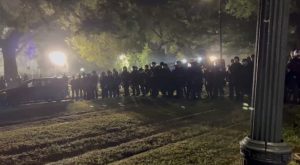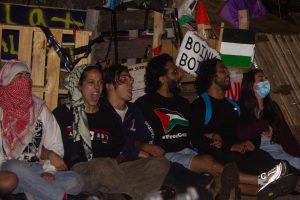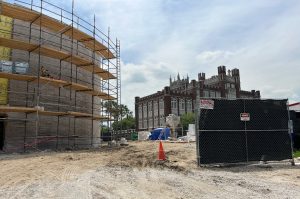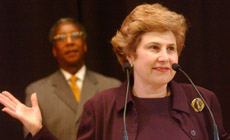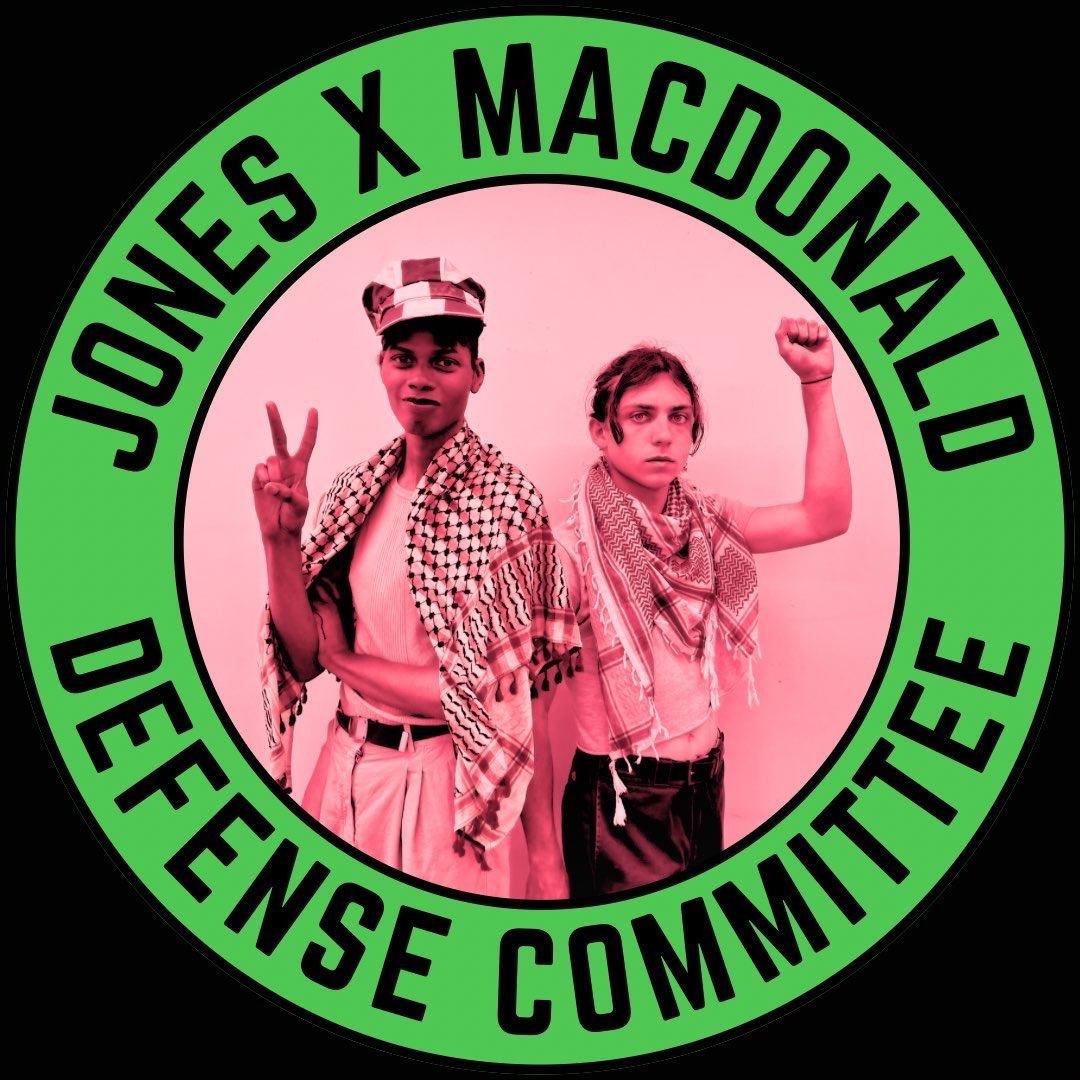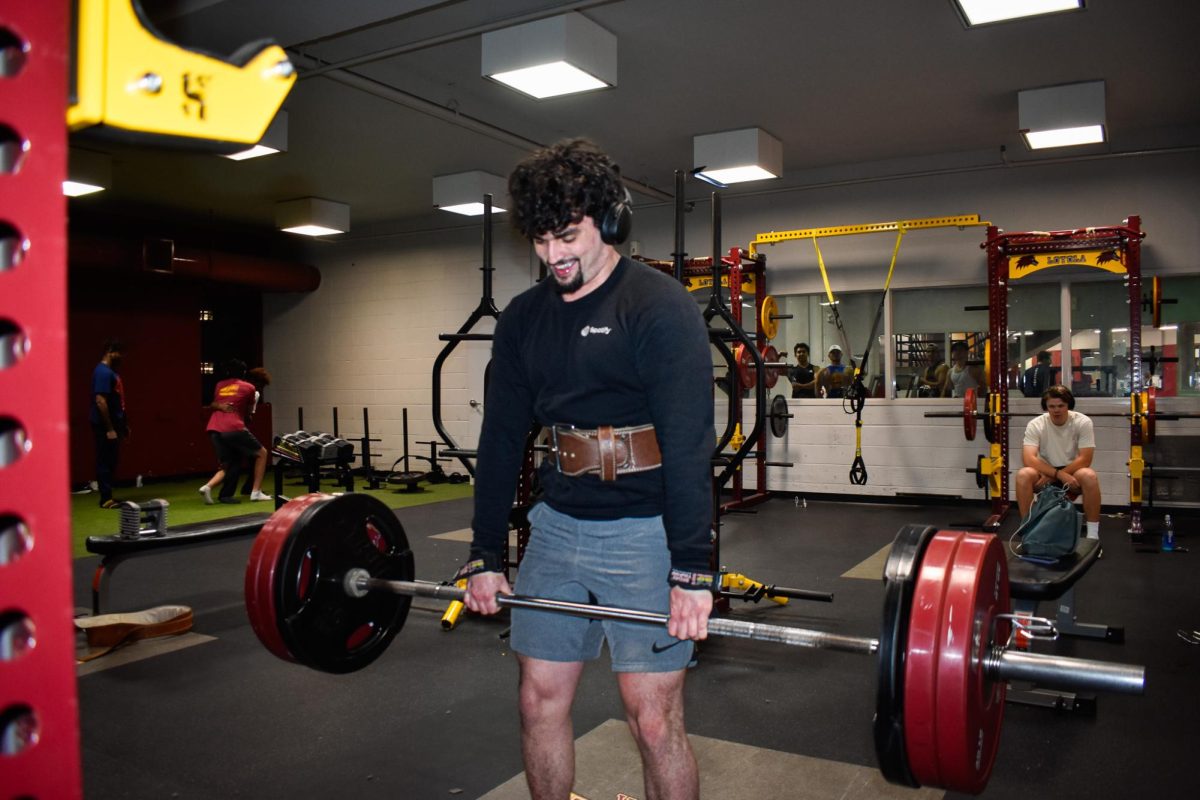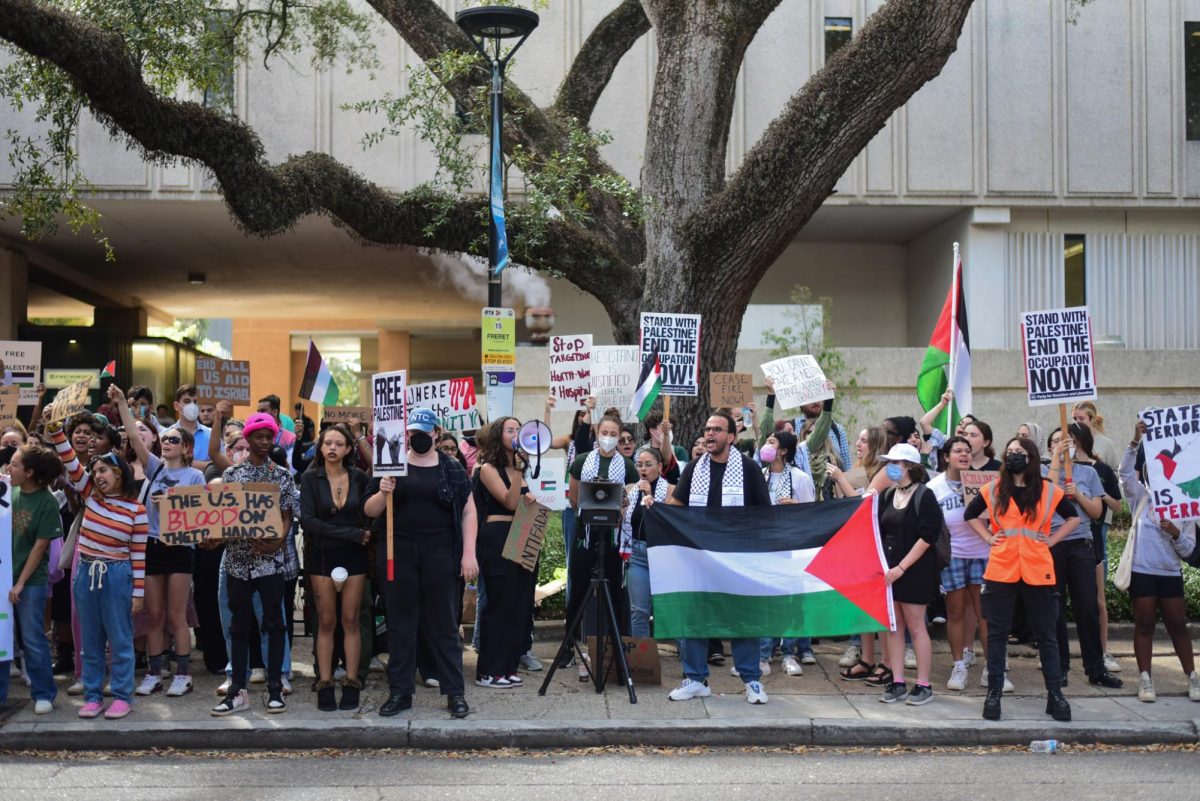Among other issues, the Rev. Kevin Wildes, S.J., university president, took a stance on sweatshirts in his first official convocation address.
“In meetings I attend or in letters I receive, the phrase ‘social justice’ is used as if it were a self-evident truth,” Wildes said. “If one walks around the campus, one will see in banners and photos and sweatshirts phrases like ‘Catholic Humanism’ and ‘Social Justice.'”
In addition, Wildes presented a vision of applying the philosophies of Catholic humanism and social justice to everyday life of Loyola through reflection.
According to Wildes, these two philosophies of Loyola are understood to be part of the university but need to be defined through examination of the terms.
While he acknowledged that the phrases regarding humanism and justice are well known at Loyola, Wildes does have some concern over the phrases and their use as a cornerstone of the university.
“I worry because one of the most fundamental responsibilities of a president is to articulate a vision for a university and then move to make the vision a reality,” Wildes said. “This responsibility has grown in importance today as there are many different ideas in our society about what it is to be a university … I would like this community to continue a very fundamental reflection about these two key elements of our mission and identity.
“Let me be clear that I do not think for a moment that I have the definitive views on issues of social justice or humanism, I think these are very rich topics. And, I do think it is important for me to raise these themes and questions as part of effort to maintain integrity in our institutional identity.”
Dr. Walter Harris, provost and vice president for academic affairs, said that Wildes’ vision will be successful.
“He brings a bold notion for a shared university vision to his position, and he brings tremendous energy and excitement to achieve that vision,” Harris said in his commencement welcome. “It is clear that under his leadership, the profile of Loyola University will continue to be lifted.”
Also of note was the presentation of the Dux Academicus Award to law school professor Kathy Lorio. The award, given annually, is the highest honor given to any faculty member. It represents excellence in teaching and scholarship.
The recepient, selected by a committee, is nominated for the award by students – both past and present -and colleagues.
Lorio is only the second law professor to receive the award in its 26-year history and is the seventh woman to receive the honor.
Lorio stated that she was very pleased to receive the award.
“I wish we would have more [law] professors get it,” she stated, “but it’s excellent and it’s great being a part of the Loyola community.”
In addition to Wildes’ speech, Harris touched on several new developments involving the university. Included in those developments were the Marquette Fellowships, the quality enhancement plan and the intellectual property statement, all of which are new to the university.
In a recent interview, Harris described the Marquette Fellowships as a way to enhance scholarly research on campus.
“We hope that faculty will improve their own research profiles and in so doing helping to create new knowledge, and we hope that they share that knowledge with the students they teach on a day-to-day basis,” Harris said.
Ten faculty members are picked for the fellowship through an application process. A stipend of $7,500 is awarded to the recipients to allow two months of research over the summer, according to the office of grants and research’s Web site.
The fellowship was founded by Harris and Wildes with the stipend being supplied by the university.
As part of the current Southern Association of Colleges and Schools reaccreditation process, a quality enhancement plan is presently being developed.
The purpose of the plan is to focus on an initiative to improve the quality and effectiveness of the university and to enhance student learning on the campuses approved by SACS.
The SACS leadership team, composed of nine faculty and staff members led by Wildes, hopes to have a decision on one of the proposed topics sometime in the next three weeks, according to Harris.
After that, a team will be established to work out the details of the plan by the end of the academic year.
There are presently three topics being proposed for the quality enhancement plan, Harris said.
An intellectual property statement is in the final stages of being approved. This document is also being developed because of a recommendation from SACS.
The document is being written to organize rights and responsibilities in regards to intellectual property and to encourage scholarly research.
Loyola hopes to create an environment where scholarly activities can take place with the university being allowed to retain some usage of the materials or information created, according to Harris.
“Our purpose is to create a document which encourages that [academic advancements] but also makes room for the university to maintain some fair use of the materials,” Harris said.
It is common for universities to maintain intellectual property statements, especially at major research universities or at universities, which receive grants from national organizations.
The creation of Loyola’s intellectual property statement was headed by Edward Kvet, dean of the College of Music and was presented at the University Senate on Jan. 13.
The last step in finalizing the statement involves presenting it to the board of trustees.
After their approval, according to Harris, the document will be implemented.
Daniel Monteverde can be reached at [email protected].


